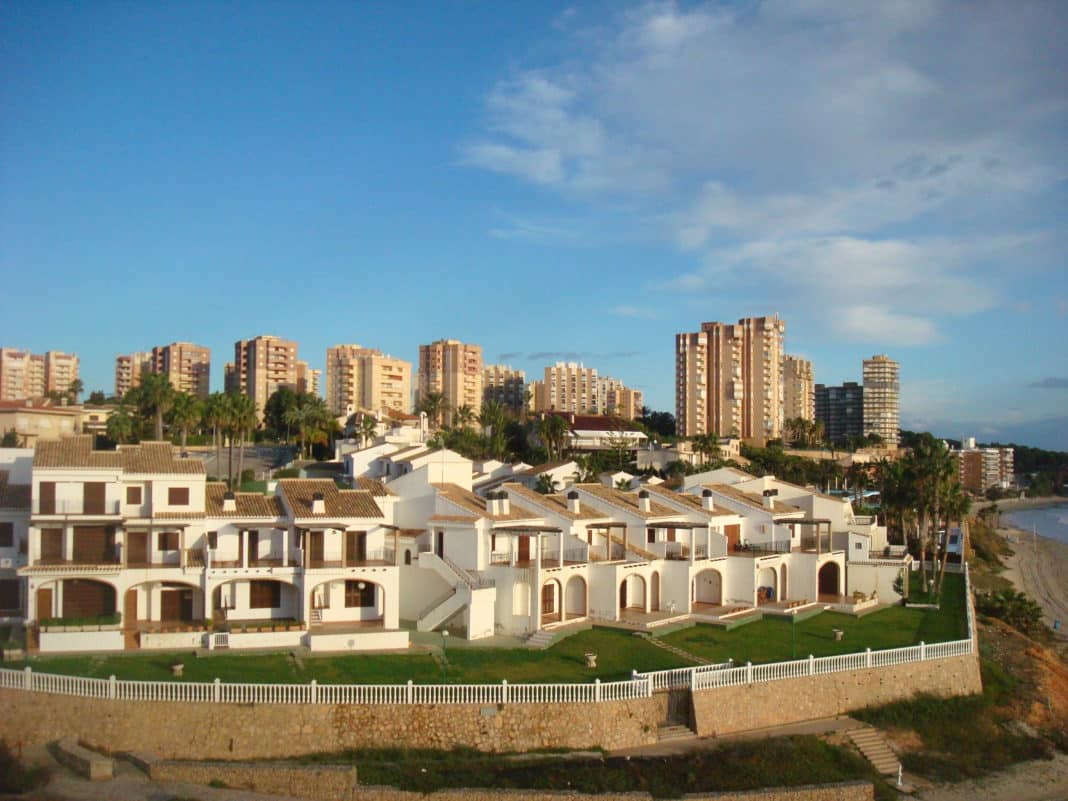Spanish
Dutch
French
German
Norwegian Bokmål
Polish
Swedish
The recent proposal by Prime Minister Pedro Sánchez to significantly increase taxes on the sale of homes to non-EU citizens who are not residents in the EU has sent shockwaves through Alicante’s real estate sector.
The province, which accounts for over 20% of all international property transactions in Spain, stands to be disproportionately affected by this measure. The proposed tax increase, which targets buyers such as British, Ukrainian, Russian, and Norwegian nationals, threatens thousands of annual property sales and has already caused widespread uncertainty among prospective clients.
The new measure, described by the Provincial Association of Developers (Provia), the College of Real Estate Agents, and the real estate agency association Asicval as “absolute nonsense,” has sparked immediate concern in the industry. According to Miguel Galindo, a representative of Asicval in Alicante, anxious buyers who have reserved off-plan properties are inundating agents with questions about the potential impact on costs and their ability to back out of purchases. The lack of clarity from the government has left real estate professionals unable to provide definitive answers.
The Ministry of Territorial Policy, led by Isabel Rodríguez, has yet to detail whether the tax would affect all non-EU buyers equally, such as an investor from Dubai and a British citizen seeking a holiday home. The only information provided so far is an official statement suggesting that the tax burden for non-EU citizens could rise by up to 100% of the property’s value, mirroring policies in countries like Denmark and Canada. However, no specific figures or implementation timelines have been disclosed, leaving the industry in limbo.
The Numbers
In 2023, 30,072 foreign buyers purchased homes in Alicante, representing 20.43% of all foreign property transactions in Spain and generating over €5.6 billion in revenue. British buyers, who have become non-EU citizens post-Brexit, accounted for the largest share, with 3,942 transactions. Significant numbers of Ukrainians (1,400), Russians (1,291), Moroccans (851), Norwegians (762), Algerians (702), Swiss (317), Chinese (236), and Belarusians (104) also contributed to the market.
These groups collectively accounted for over a third of foreign transactions in the province. While statistics do not distinguish between EU residents and non-residents, the sector estimates that thousands of transactions could be affected annually. If applied proportionally, Sánchez’s figures suggest over 5,500 homes in Alicante alone could be impacted each year.
Concerns in the Industry
Jesualdo Ros, general secretary of Provia, expressed deep concern over the potential fallout. He highlighted that years of promotional efforts, such as attracting U.S. investors to the Costa Blanca, could be undone. Ros also emphasized that the homes targeted by non-EU buyers, often beachfront properties, do not overlap with the types of housing sought by young couples or local families.
He questioned the rationale behind a policy that does not address Spain’s housing affordability issues but risks alienating a crucial segment of the market.
Marifé Esteso, president of the Alicante API College, echoed these concerns, stressing the economic importance of residential tourism. She pointed out that foreign buyers not only invest in property but also inject money into local businesses and services during their stays.
Esteso dismissed Sánchez’s proposal as ineffective, suggesting instead that the government focus on increasing land availability and providing legal guarantees for rental property owners to address housing shortages.
Immediate Impact
The uncertainty surrounding the tax increase is already affecting the market. Miguel Galindo of Asicval reported that British clients, alarmed by the announcement, are seeking reassurances. Real estate professionals in Dénia, a popular coastal town, have been interviewed by British media outlets, amplifying concerns among potential buyers.
Galindo noted that even the suggestion of such a tax has already disrupted buyer confidence, which could have lasting repercussions for the region’s economy.
While Asicval acknowledged positive aspects of Sánchez’s housing policy, such as tax incentives for landlords and tenant guarantees, they criticized the lack of a clear timeline for implementation. The organization also reiterated its opposition to restrictions on non-EU property purchases, warning that they could exacerbate market uncertainty.
Calls for a Pragmatic Solution
Industry leaders have urged the government to reconsider the proposed tax increase or at least provide detailed guidance to mitigate the growing confusion. Provia’s Ros argued that what the housing market needs is a comprehensive state pact to address underlying issues like housing availability and affordability. Esteso agreed, highlighting the need for constructive policies that balance the interests of local residents and international buyers without jeopardizing economic growth.
The proposal has inadvertently highlighted broader issues within Spain’s housing market, such as the chronic shortage of affordable homes and the lack of a cohesive national strategy. While the tax increase aims to address housing inequality, experts warn it could backfire by discouraging foreign investment and damaging the local economy, particularly in regions like Alicante, where international buyers play a pivotal role.
Conclusion
Pedro Sánchez’s proposed tax increase on property purchases by non-EU citizens has thrown Alicante’s real estate sector into turmoil. With thousands of transactions at risk and no clear implementation plan, the measure threatens to undermine years of progress in promoting the region as a prime destination for international buyers.
Industry professionals are calling for the government to either revise the proposal or focus on more effective solutions to Spain’s housing challenges. In the meantime, uncertainty continues to loom, with the potential to disrupt one of the province’s most vital economic drivers.
Spanish
Dutch
French
German
Norwegian Bokmål
Polish
Swedish












